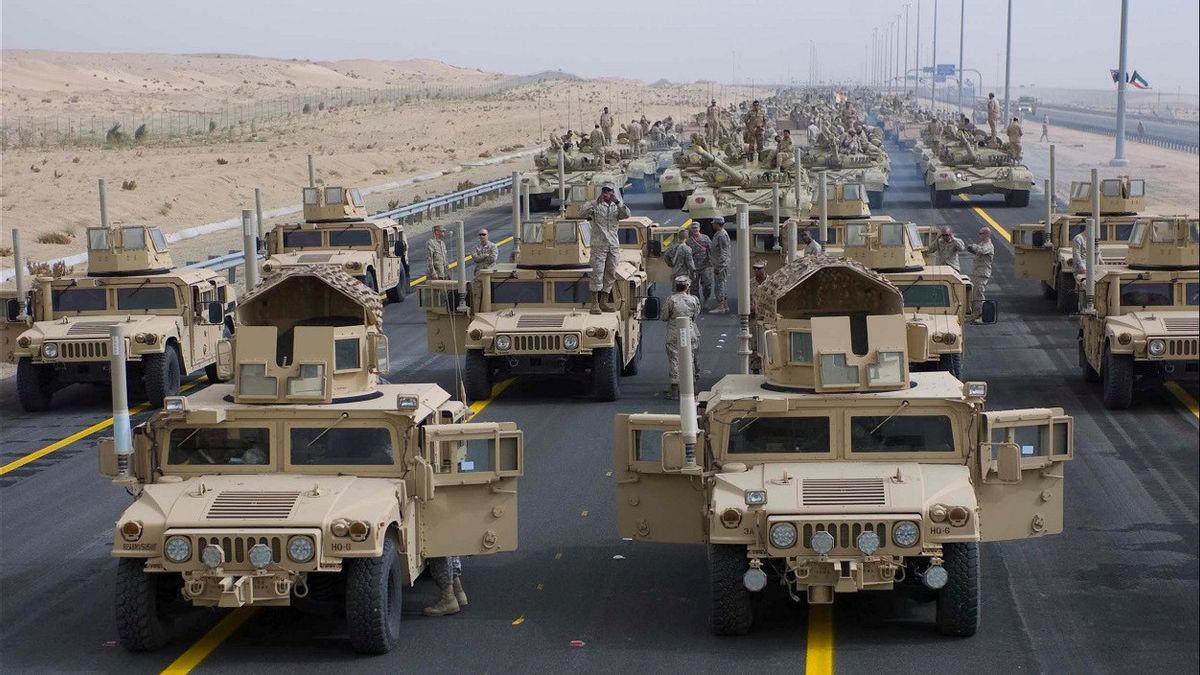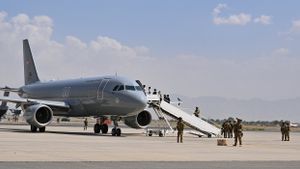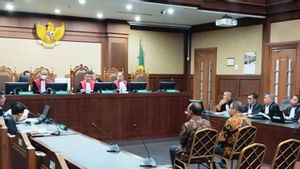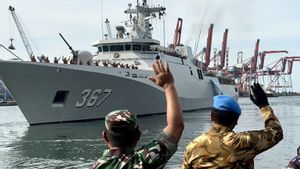JAKARTA - The United States is said to be planning to maintain its military presence around Afghanistan, after withdrawing from the country after a long war spanning 20 years, Russian officials say.
Washington has not given up on its geopolitical aspirations in the region, seeking to shore up its position in neighboring Afghanistan such as Uzbekistan and Tajikistan under the pretext of fighting terrorism, said Yuri Kokov, deputy head of Russia's Security Council.
"Indeed, there is a threat of a geopolitical nature (to Russia), stemming from the fact that the United States has not really abandoned their ambitions in the region," Kokov said, speaking to the Rossiyskaya Gazeta newspaper in an interview, citing Sputnik News October 6.
"Instead, under the pretext of fighting terrorist groups, they seek to gain a foothold in neighboring Afghanistan and to create bases there for unmanned aerial vehicles and training centers for the training of local, law enforcement, and special military personnel. Basically, this is means bringing NATO infrastructure closer to Russia's borders," the official warned.
Comment on the 'dynamic' and 'contradictory' processes taking place in Afghanistan, including the dramatic and unexpected collapse of the government and security forces in a matter of days in mid-August.

Kokov said that the only thing that can be stated with confidence is that the 20-year military campaign by the United States and its allies in Afghanistan has not only ended in vain, but in many ways has also exacerbated the crisis in the country.
"The most important thing in the fight against terrorism is the outcome. We see, as a result of the coalition's presence in Afghanistan, the country is basically taken over by the international terrorist organization known as the Taliban Movement," Kokov added.
Kokov expressed concern that Afghanistan might once again be thrust into civil war, given the country's heterogeneity and ethnic composition, as well as the influence of clans, tribal ties, and traditions, plus the degradation of the humanitarian situation, which he said could strengthen radical groups.
"(These factors) pose a danger of spreading terrorism into Central Asia and into Russian territory," Kokov warned.
In testimony before lawmakers late last month, senior US military officials reportedly indicated President Joe Biden's administration was in talks with Moscow about using Russian bases in Central Asia to carry out counterterrorism missions in Afghanistan.
The officials further pointed out that Washington is talking to the governments of Tajikistan, Uzbekistan, Kyrgyzstan, and other countries about potential basic rights.

Last month, the Wall Street Journal reported that US Chairman of the Joint Chiefs of Staff General Mark Milley raised the subject of Russian bases in Central Asia in response to the terror threat in Afghanistan in talks with Russian Chief of General Staff Valery Gerasimov in Helsinki on September 22. Officials who spoke to the paper described Gerasimov's reaction to Milley's proposal as "non-committal."
Meanwhile, other Russian officials, including Deputy Foreign Minister Sergei Ryabkov, previously indicated Moscow did not see 'how any form of US military presence in Central Asia could enhance the security of the countries involved and/or their neighbors.' Such a deployment "would definitely not be in Russia's interest," according to Ryabkov.
To note, President Biden's Administration first approached leaders in Uzbekistan and Tajikistan to discuss fundamental issues in May.
Homeland Security officials traveled to Tashkent to discuss potential counterterrorism cooperation in July, when State Department and Pentagon officials met with the Foreign Ministers of Uzbekistan and Tajikistan in Washington.
SEE ALSO:
The US briefly deployed troops in Tajikistan in 2001, and in Uzbekistan between 2001 and 2005, in the early phase of the US-led war in Afghanistan. Between 2001 and 2014, Washington also had access to key military facilities in Kyrgyzstan, which used as a hub to transport troops, equipment, and supplies to and from the war-torn country. Uzbekistan and Kyrgyz authorities 'expel' US troops from their countries after Washington was accused of interfering in their internal affairs.
Both Tajikistan and Kyrgyzstan are allies of Russia in the Collective Security Treaty Organization (CSTO). Uzbekistan maintains a policy of neutrality but has engaged in security cooperation and exercises with Russian forces.
The English, Chinese, Japanese, Arabic, and French versions are automatically generated by the AI. So there may still be inaccuracies in translating, please always see Indonesian as our main language. (system supported by DigitalSiber.id)


















